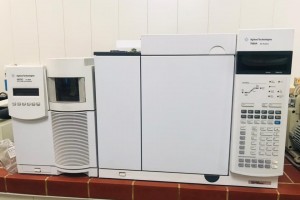
The College of Education for Science in the Department of Life Sciences at the University of Basrah discussed a PhD thesis on (the biological effectiveness of isolated and purified alkaloid compounds from two types of medicinal plants)
The thesis presented by the researcher (Mona Abdel Muttalib Yahya) included
The current study revealed the extraction and identification of alkaloid compounds from two types of local plants in the province of Basra, southern Iraq, which are the capers plant (Conocarpus lancifolius (Engl) and the brocade plant (Calotropis procera (Aiton)). Selection of its anticancer activity against two types of cancer cell lines in addition to its activities as an antioxidant in vivo.
Thesis concluded
The qualitative results of the alkaloid compounds showed their presence in the leaves of the capers plant, while they were found in each of the leaves and roots of the brocade plant. Two types of extraction methods were carried out in the extraction of alkaloids, which are hot extraction (sexolite) and cold extraction by drenching) using three types of solvents (water methanol and dichloromethane), which proved the superiority of hot methanolic extraction in the percentage of net crude alkaloid extract for both plants.
The alkaloid compounds were diagnosed and purified by high-performance liquid chromatography (HPLC). Further methods of diagnosis of alkaloid compounds were carried out using HNMR magnetic resonance techniques, gas-liquid chromatography-mass spectrometry (GC-MS), thin layer chromatography (TLC) and infrared spectroscopy. FT-IR The results of the antibacterial activity, which were tested against four different types of pathogenic bacteria, which included some Gram-positive bacteria, Bacillus subtilis Staphylococcus aureus and Gram-negative bacteria Klebsiella pneumoniae.Escherichia coli, showed a significant superiority of the MPO compound against the four studied bacteria types as indicated. Anti-cancer efficacy results conducted against two types of cell lines, the breast cancer cell line MC-F-7 and the esophageal cancer cell line 4 SK-F-GT. Great cytotoxicity of the colicine compound against the breast cancer cell line 7-MC-F with a value of half the lethal concentration ( IC50) amounted to 55.33 μg/mL while MPO showed significant selective cytotoxicity against the esophageal cancer cell line SK-GT-4. With a value of half the lethal concentration (IC50) of 7.85 μg / ml, the antioxidant activity, using the free radical removal test generated from DPPH, was superior to the crude alkaloid extract of the roots of the brocade plant.








